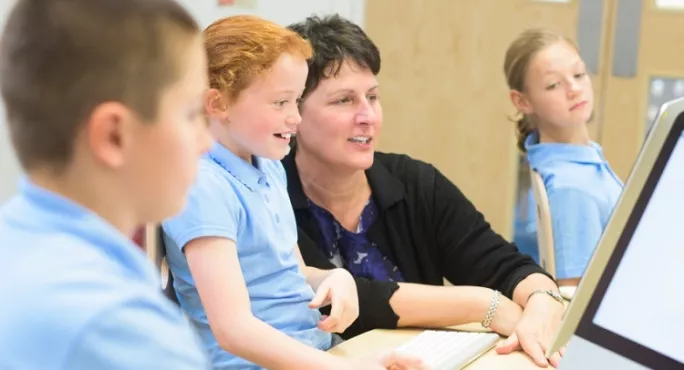Advocates of educational technology believe that the web can significantly improve learning. The home-access scheme at the end of the last decade had positive effects by improving access to the internet for disadvantaged children. Recent analysis now suggests that such schemes can go further if the content children find is readable.
Over the past 20 years, the rise of the internet and the availability of search engines has undoubtedly changed our society dramatically. For some of us, information is never more than a few clicks away.
Unfortunately, the positive effect of these changes is not equally available to all. We need to start distinguishing between technical access and reading access.
For many people, the volume of information can be overwhelming in itself, and finding specific content within pages and pages of search results can be daunting. A large proportion of the available information is actually too hard to understand for almost half of the global population.
The 'readability gap'
The education and technology company, Wizenoze, reports that more than 41 per cent of users leave websites because the text is too difficult to read. They also estimate that in the UK, up to 70 per cent of text is written at a reading age that is higher than the average person can read. This is known as the readability gap. It is the difference between the reading level of a visitor and the reading level of the text they are reading.
The readability gap is at its most acute for students, with many teachers airing concerns over students choosing to view videos online rather than read text. The choice of video over text negatively affects literacy due to the reduced time spent reading. But it is not only students that have been affected. Many teachers are themselves unable to access the highest reading levels.
For educational needs, search results from general search engines are in many cases not relevant: they are too difficult to read, driven by advertisements or comprised by being content from unreliable sources. Teachers and students are wasting valuable time searching for good content. Sites such as Wikipedia are unsuitable because the language they use is frequently too difficult, and sites such as Wikikids or Vikidia are an unreliable source because the content is provided by children.
“The internet was designed for adults, but it is increasingly used by children and young people, and digital technology increasingly affects their lives and futures," says Unicef executive director Anthony Lake.
Not designed for children
Simply put, the web was not designed for children or adults with low-to-average literacy. It was conceived for, and by, adults, and written for an elite reader.
We must continue to encourage children and students to use the internet as a great source of information, but we also need to remind parents, teachers and policymakers that most online content is not targeted to their needs, nor indeed their age. Finding the most pertinent information, presented in an age-appropriate way, has to be the aim of improving literacy and learning for at least one-third of online users.
The current online environment for children and students focuses on blocking inappropriate information through filters. Although filtering is a good solution to protect users from harmful information, it is not a solution that helps them get access to information they can understand. The information that gets through the filters is very often not relevant or is commercially driven. But more importantly, most of the information is still too difficult to read and understand.
Amid concern over fake news, our ability to be critical of content online and to know what is a reliable source needs to be supported. This is best done if we are able to read and make that judgement for ourselves.
I remain passionate about the potential of new technology to enhance teaching and learning. Alongside access and online safety, we now need to use tools to filter content by readability, if we are to realise that opportunity.
Lord Jim Knight is chief education adviser to Tes Global, the parent company of Tes





